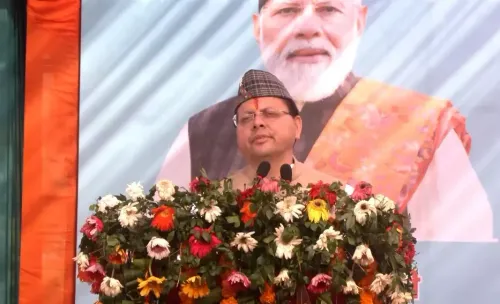Are Young Professionals in India Facing Increased Workplace Stress?

Synopsis
Key Takeaways
- Young professionals in India are facing rising workplace stress levels.
- Work overload is the main stress trigger for younger employees.
- Older workers demonstrate better stress management skills.
- Feeling judged for flexible work arrangements is common.
- Companies need to prioritize mental well-being for a productive workforce.
Chennai, May 20 (NationPress) In the context of changing workplace dynamics, young professionals in India are encountering elevated levels of stress and mental health challenges, as per a recent report released on Tuesday.
The study conducted by ADP, a leading technology firm, underscores the evolving emotional landscape of employment, where differences in stress levels among generations are becoming increasingly apparent.
The findings indicated that young professionals (aged 27-39) report the highest stress levels, with 11 percent experiencing significant stress, surpassing the national average of 9 percent. Meanwhile, just 51 percent of workers aged 18-26 claim to manage stress effectively.
Conversely, older employees (aged 55-64) exhibit superior stress management skills, with 81 percent indicating they feel stressed less than once a week.
Work overload emerged as the predominant factor contributing to stress among younger workers—16 percent of those aged 18-26 attribute their stress to heavy workloads, which is double the rate of their older peers aged 55 to 64 (8 percent).
Additionally, 67 percent of respondents expressed feeling judged for utilizing flexible working arrangements, while 65 percent reported being monitored at work, potentially exacerbating feelings of pressure.
“These insights reveal how the contemporary workforce, especially younger professionals, is grappling with a complex and emotionally taxing work environment. The repercussions of stress alongside feelings of being judged or closely observed highlight the necessity for organizations to foster a more supportive atmosphere for their employees,” stated Rahul Goyal, Managing Director of ADP India and Southeast Asia.
While the overall stress levels among Indian employees have marginally decreased from 12 percent in 2023 to 9 percent in 2024, the proportion of employees who feel they are flourishing in their roles has also slightly declined from 22 percent in 2023 to 20 percent in 2024.
“Providing flexibility is merely one facet of the solution—what genuinely counts is cultivating a culture of trust, empathy, and psychological safety. By prioritizing the mental well-being of employees, organizations can nurture a healthier, more engaged, and productive workforce,” Goyal remarked.









